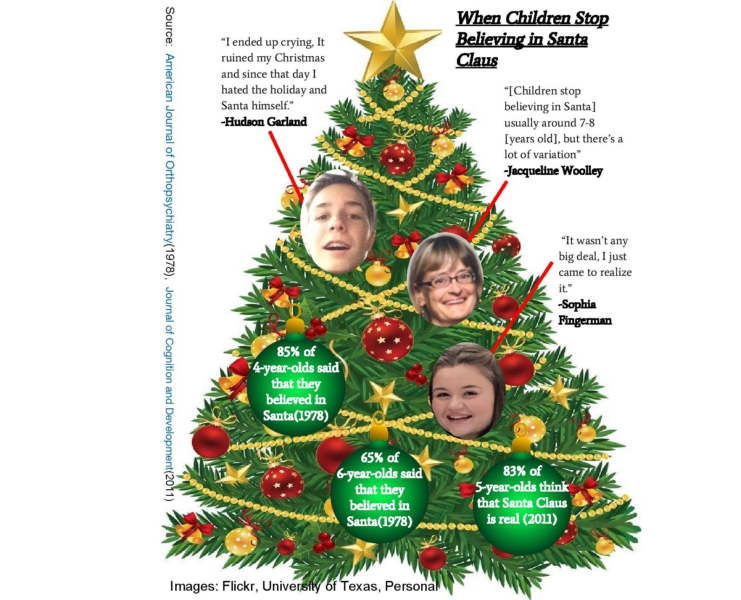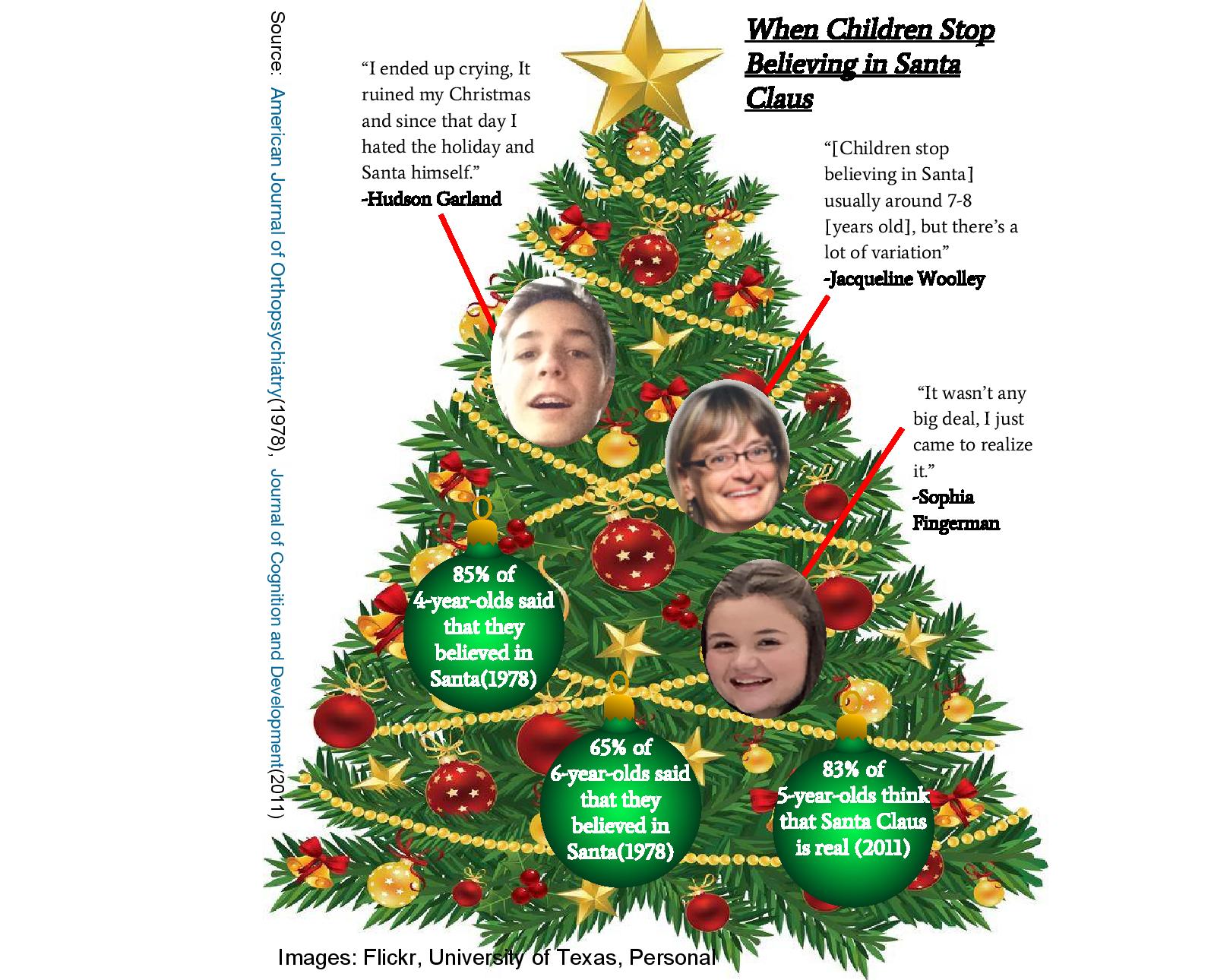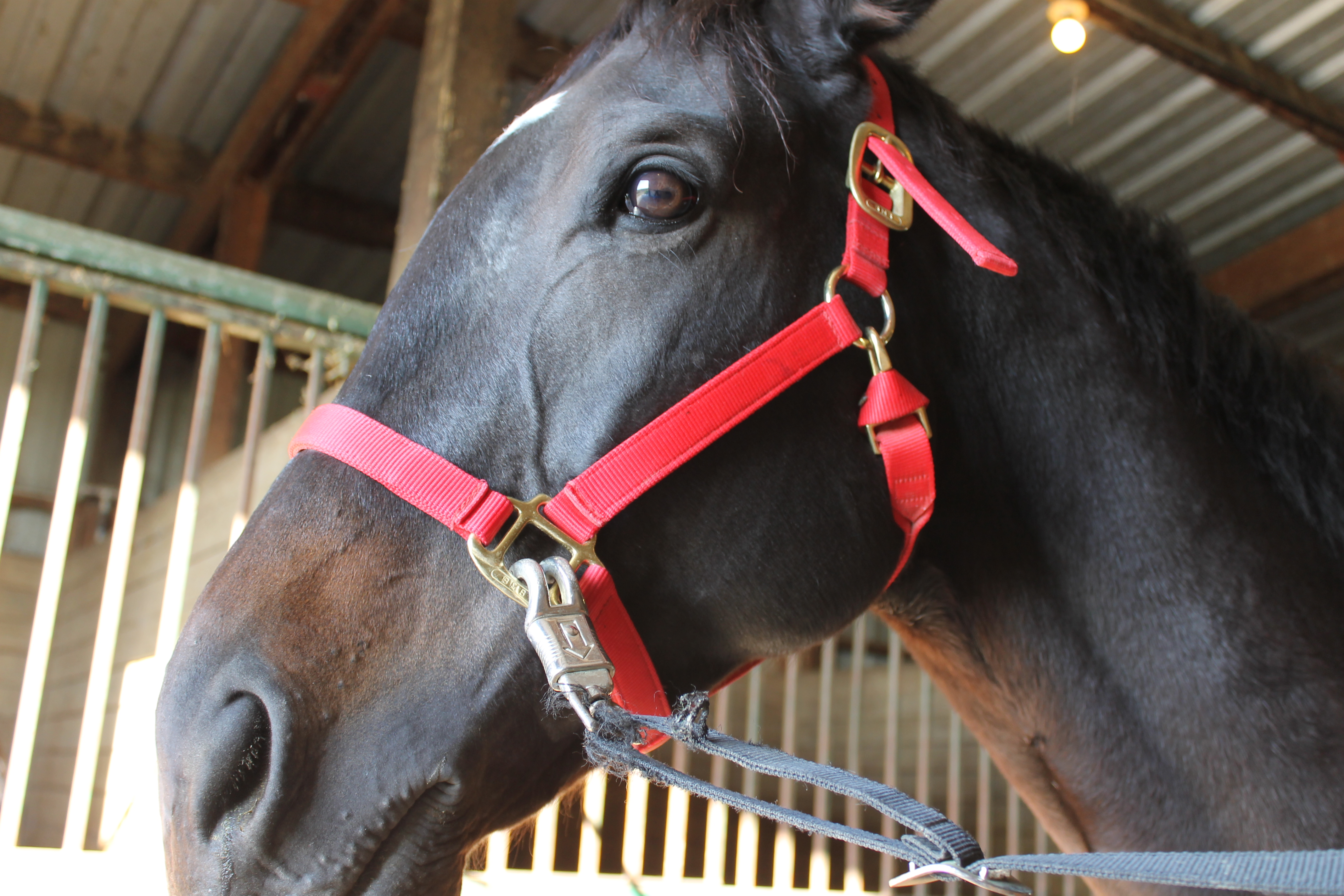Ho Ho Ho: Do less children believe in Santa Claus?

By Marco Iandolino,
BlueDevilHUB.com Staff–
With the holiday season just around the corner, children all across America tarry around their Christmas trees waiting for presents from the jolly old man himself, Santa Claus.
As kids get older, they start to confront their parents regarding the truth surrounding the Santa myth.
“[Children stop believing in Santa] usually around seven to eight [years old], but there’s a lot of variation,” Jacqueline Woolley said.
Woolley has a Doctorate in Developmental Psychology and is the chair of the Department of Psychology at the University of Texas.
“Children stop believing for a variety of reasons,” Woolley said. “Parents withdraw support, increased cognitive abilities facilitate noticing and contemplating inconsistencies within the myth and between it and real-world principles, peers question the myth.”
According to Woolley, as children get older, their brains develop to a certain point where the idea of Santa Claus does not add up with the realities of the world. They start to connect the dots and realize it is impossible for a single person to deliver gifts to every child in the world.
For any kid around the age of eight, finding out Santa is not real can be devastating. In the case of sophomore Hudson Garland, he found out the hard way.
“When I was about eight or nine years old, I was getting some hints that Santa wasn’t real,” Garland said.
Garland adds that he asked his mom if Santa was real or not, and he received his dreadful answer.
“I ended up crying,” Garland said. “It ruined my Christmas and since that day I hated the holiday and Santa himself.”
While finding out the truth about Santa can be detrimental to a child’s psychological development, most children react differently.
Sophomore Sophia Fingerman says she felt fine after learning the truth.
“It wasn’t any big deal, I just came to realize it,” Fingerman said.
Fingerman adds that her parents would make her leave milk and cookies for Santa on Christmas night in order to trick her into believing in him.
When children are young, their brains are not fully developed enough for them to recognize that a figure like Santa Claus cannot exist, riding a sleigh in the air with magical reindeer and delivering so many presents in one night.
A study conducted by Doctors of Philosophy Carl Anderson and Norman Prentice at the University of Texas at Austin, found that children were often thrown into the myth of Santa Claus “against their will,” and that they felt lied and cheated to when they found out the truth.




